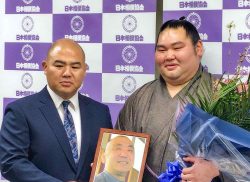14:20 JST, January 12, 2021
There has been no end to cases in which people have hidden assets overseas while not paying taxes. The international monitoring network must be strengthened to establish a system that does not allow delinquent payers to benefit by escaping.
The national tax authorities in Japan do not have the power to seize assets from individuals and companies that have failed to pay their taxes if they hide their assets overseas. The Japanese authorities have to ask the foreign tax authority in the location where the assets are held to seize the assets.
This mechanism is called “mutual assistance in the collection of taxes” and was introduced in 2013. Japan has concluded agreements on mutual assistance with about 70 countries and regions. There were only a few requests annually for the first five years, but the figure reportedly increased to 29 cases in fiscal 2019 for a total of ¥3.7 billion.
In one case in 2018, Japan asked Australia to seize the Australian bank account of a man who refused to pay gift tax and collected all ¥800 million in arrears.
Even if tax investigation detected undeclared or concealed income, it is meaningless to impose taxes on the income without actually collecting the money. The fact that international cooperation in the field of tax collection has begun to gain momentum is a major step forward.
The rapid increase in mutual assistance for tax collection is partly due to the fact that it has become easier to obtain information on assets overseas.
The Organization for Economic Cooperation and Development has established a system in which about 100 countries and regions, including non-OECD members, provide each other with account information. Japan joined the system in 2018 and obtained nearly 2 million pieces of information in fiscal 2019.
In a reporting system on assets overseas introduced in 2014, an individual in Japan is obliged to report any assets held abroad worth over ¥50 million to Japanese tax offices. Information must be swiftly collected to identify hidden assets.
China and Southeast Asian countries, where many Japanese companies operate, are not on the list of countries with which Japan has concluded mutual assistance agreements. To increase the effectiveness of taxation and tax collection, Japan should persistently seek to conclude mutual assistance agreements with such countries.
In their outline for tax system reforms in the next fiscal year, the ruling Liberal Democratic Party and Komeito included a plan to strengthen measures against hidden assets overseas. They seek to widen the scope of criminal penalties against those who transfer assets overseas with the purpose of avoiding seizure.
The progress of digitization has accelerated the international flows of funds. Efforts to circumvent the network of international cooperation must be contained.
In recent years, there has been an increase in the amount of undeclared income by corporations and wealthy people who do business with overseas partners and clients. The public will feel it is unfair if malicious tax evasion is overlooked. Illicit concealment of property must not be allowed also for the purpose of encouraging appropriate tax payments.
— The original Japanese article appeared in The Yomiuri Shimbun on Jan. 12, 2021.
Top Articles in Editorial & Columns
-

Riku-Ryu Pair Wins Gold Medal: Their Strong Bond Leads to Major Comeback Victory
-

Reciprocal Tariffs Ruled Illegal: Judiciary Would Not Tolerate President’s High-Handed Approach
-

China Provoked Takaichi into Risky Move of Dissolving House of Representatives, But It’s a Gamble She Just Might Win
-

Japan’s Plan for Investment in U.S.: Aim for Mutual Development by Ensuring Profitability
-

Flu Cases Surging Again: Infection Can Also Be Prevented by Humidifying Indoor Spaces
JN ACCESS RANKING
-

Producer Behind Pop Group XG Arrested for Cocaine Possession
-

Japan PM Takaichi’s Cabinet Resigns en Masse
-

Man Infected with Measles Reportedly Dined at Restaurant in Tokyo Station
-

Israeli Ambassador to Japan Speaks about Japan’s Role in the Reconstruction of Gaza
-

Videos Plagiarized, Reposted with False Subtitles Claiming ‘Ryukyu Belongs to China’; Anti-China False Information Also Posted in Japan
























